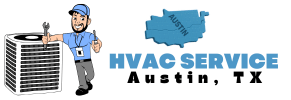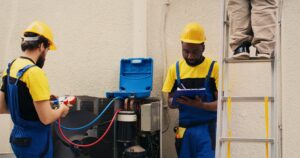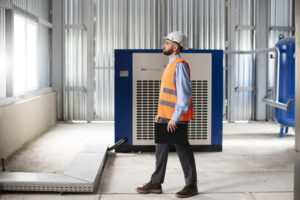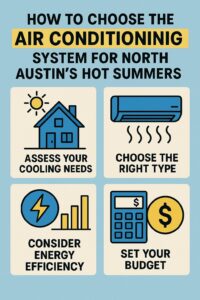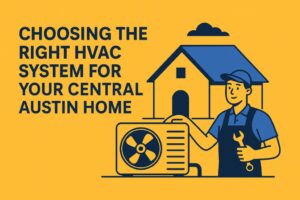When your HVAC system fails unexpectedly, it can be a stressful experience, especially during the scorching summer heat or the chilly winter nights in South Austin. An HVAC emergency can occur anytime and may leave you without heat or air conditioning, making it essential to know what to expect and how to handle the situation. This article will guide you through emergency HVAC services in South Austin, detailing what these services entail, how to prepare, and the steps to take when you need immediate assistance.
What is Emergency HVAC Service?
Emergency HVAC service refers to urgent repairs or replacements that must be addressed outside regular business hours. These services are typically needed when the heating or cooling system malfunctions in a way that makes the home uncomfortable or unsafe. HVAC systems are complex, and a malfunction can result from various factors, such as electrical issues, refrigerant leaks, broken components, or general wear and tear. Emergency HVAC service providers are available 24/7 to address these issues and restore your home to comfort as quickly as possible.
Types of Emergency HVAC Issues
Emergency HVAC issues vary, but there are several common problems that homeowners in South Austin might experience. Here are some examples of emergencies:
1. Air Conditioning Failure in the Summer
South Austin is known for its hot, humid summers, and air conditioning is crucial to maintain a comfortable indoor environment. When the AC fails during a heatwave, it can make your home unbearable. Common causes of AC breakdowns include:
- Refrigerant leaks
- Frozen evaporator coils
- Malfunctioning thermostats
- Clogged air filters
- Electrical issues
2. Heating Failure in the Winter
Although winters in South Austin are typically mild, there are occasional cold spells where heating systems are essential. If your heating system stops working during the colder months, it can lead to discomfort, particularly for families with small children or elderly members. Potential issues include:
- Ignition problems in furnaces
- Faulty thermostats
- Gas leaks
- Broken blower motors
3. Complete System Shutdown
A complete system shutdown happens when the HVAC system stops working altogether. This could be due to a power surge, a tripped circuit breaker, or more serious internal issues. Without intervention, this may leave you without both heating and cooling.
4. Strange Noises or Odors
If your HVAC system begins making strange noises like clanking, rattling, or grinding, or if you smell burning or gas odors, this can signal a serious malfunction that requires immediate attention. Unusual sounds and smells can indicate:
- Loose parts or debris inside the system
- Electrical problems
- Carbon monoxide leaks
- Overheated components
When to Call for Emergency HVAC Services
It’s important to know when to call an emergency HVAC service, as not all HVAC issues require immediate attention. Here are some signs that you should call for emergency HVAC services in South Austin:
1. No Heating or Cooling
If your HVAC system isn’t producing hot or cold air, especially during extreme weather, it’s time to call for immediate service. This is one of the most common emergency issues homeowners face.
2. Complete System Failure
If your HVAC system stops working altogether, whether during the summer or winter, this is an emergency. Without a working system, your home will quickly become uncomfortable.
3. Strange Noises or Odors
Any unusual noise or odor coming from the HVAC system should be addressed immediately. Strange smells, such as burning odors or gas smells, can indicate fire hazards or carbon monoxide leaks, which need urgent attention.
4. Water Leaks Around the Unit
Leaking water around your HVAC unit could be a sign of condensation buildup, a clogged drain line, or a refrigerant leak. If left unaddressed, this can lead to water damage or mold growth in your home.
5. Frozen Coils or Ice Build-Up
Frozen coils or ice buildup on your HVAC system can be a sign of airflow issues or a refrigerant leak. If not dealt with promptly, it can cause permanent damage to the system.
What to Expect During an Emergency HVAC Service Call
When you call for emergency HVAC services, it’s important to understand the process so you can be prepared. Here’s a breakdown of what to expect:
1. Initial Contact and Assessment
When you call an emergency HVAC service provider, the technician will first gather basic information from you about the problem. They may ask questions like:
- What’s the issue with your HVAC system?
- When did the problem start?
- Have you noticed any unusual sounds or smells?
- What is the current temperature in your home?
The technician will assess whether the issue requires immediate attention or can wait until regular hours. In urgent situations, they will dispatch a technician right away.
2. Arrival of the Technician
An HVAC technician will arrive at your home, equipped with the tools and parts necessary to diagnose and repair the issue. They will first inspect the system and identify the root cause of the problem. Some common diagnostic steps include:
- Checking the thermostat settings
- Inspecting the air filters
- Examining the wiring and electrical components
- Inspecting the compressor or furnace
- Checking refrigerant levels
3. Diagnosis and Repair
Once the technician identifies the issue, they will provide you with a detailed explanation of the issue and the necessary repairs. In many cases, the technician will perform the required repairs on the spot. Depending on the issue, the repair process could involve:
- Replacing faulty components, such as a blower motor or capacitor
- Recharging refrigerant levels
- Fixing electrical issues
- Repairing or replacing the thermostat
- Cleaning or replacing clogged air filters
If the issue is complex or requires replacement parts that the technician doesn’t have on hand, they may need to order parts or recommend a follow-up appointment.
4. Testing the System
After completing the repairs, the technician will thoroughly test the HVAC system to ensure that everything is working properly. This may involve running the system through a full heating or cooling cycle to verify performance.
5. Payment and Aftercare
After the repairs are completed, the technician will provide you with an invoice for the service rendered. Payment options will vary, but emergency service calls usually come with a premium for after-hours work. Be sure to ask about any warranties or guarantees on the work completed.
Tips for Choosing the Right Emergency HVAC Service in South Austin
When looking for emergency HVAC services in South Austin, you should consider several factors to ensure you receive quality, reliable service. Here are some tips to help you choose the best emergency HVAC provider:
1. 24/7 Availability
Choose an HVAC service that offers round-the-clock emergency assistance. HVAC problems can occur at any time, so it’s essential to have a service provider who can respond quickly to your needs, even in the middle of the night or on weekends.
2. Licensing and Insurance
Ensure that the HVAC company is licensed and insured. Licensed technicians have the necessary training and knowledge to handle complex HVAC systems. Insurance protects both you and the contractor in case of accidents or damage during repairs.
3. Experience and Reputation
Look for a service provider with a proven track record of excellence. Read customer reviews and ask for recommendations from friends or neighbors. A reliable HVAC contractor will have positive feedback from previous customers.
4. Upfront Pricing
Choose a company that offers transparent and upfront pricing. Emergency services can be expensive, but a reputable provider should provide you with a clear estimate before starting any work.
5. Fast Response Times
The speed at which a company responds to emergency calls is crucial. You want a service provider who can dispatch a technician quickly to minimize your discomfort.
Conclusion
An HVAC emergency can happen at any time, and when it does, it’s important to know what to expect and how to handle the situation. In South Austin, the sweltering heat and occasional cold fronts make a reliable HVAC system essential. If your HVAC system breaks down unexpectedly, call for emergency services right away to prevent further damage and ensure the safety and comfort of your home.
